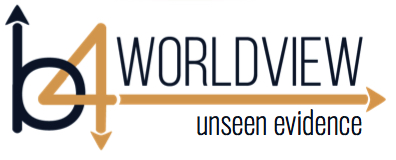
Key Thought for this session:
“Faith is the evidence I cannot observe for the truth that I must act on.”
The world is full of deception and lies. It is especially a problem for our worldviews, since anyone can publish anything on the Internet, or many other places, without being challenged. Advertising has become a big business with all the competition that exists for consumers. One major problem with eido knowledge was mentioned in session 5. You might remember we previously defined “confirmation bias” as the tendency of people to favor information that confirms THEIR beliefs or hypotheses. It’s this confirmation bias that is rampant in our thinking and decision making. Science, which has largely been the trusted source of eido knowledge, is not exempt from this type of deception. In fact, science is currently being criticized these days for biased inquiry and conclusions based on the political, economic, and religious pressures of the culture. Disagreement in eido knowledge on global warming and evolution are prime examples of how confusion and bias with eido knowledge can affect what knowledge people depend on for their worldviews.
I had a friend that trained his son to find deception by awarding him a quarter every time he could “spot the lie” in a marketing ad. While this ability to see what is not true is helpful in buying products, it is especially helpful in life’s choices. Maybe this idea has some merit for us if we are serious about having worldviews that produce the best life. One value of this session is for you to gain a better understanding of how knowledge is formed and how the two types of knowledge work TOGETHER to help you FIND and TRUST what is true.
And remember, whatever knowledge we trust to be true, is the knowledge that we will act on. Some worldview experts have found faith essential in finding and trusting knowledge as truth. And on the flip side, some worldview experts continue to search for ways to minimize the role of faith. When we prefer to only trust what we can observe, we are likely to believe that science is the authority of truth. And there is valid concern with trusting science alone. Think about this - science cannot prove science is the authority for truth. Those who believe that science is the authority, have faith in science and by definition they have trusted something that is not provable by science – called faith. Science has many benefits for us through statistical inference, but these benefits do not include authority.
This leads us to the fourth point I wish to make about truth, knowledge, and faith.
Some of what you believe depends on OTHER things you believe. We call the “foundation” or lowest level of belief your “core assumptions.” These comes BEFORE your worldview. Because these are beliefs you hold dear, you trust your core assumptions to be true without question. Essentially core assumptions become your faith; you trust them more than you trust anything else. We might say that “core assumptions” are what you believe, but you cannot prove, and do not debate, but use to prove everything else you believe. It doesn’t matter how smart or clever you are, all of your rational conclusions or worldviews emerge from your core assumptions. No one really knows where you get your core assumptions, but some experts believe that you are influenced in your formative years by people, culture, and experiences that made a significant impact, whether positively or negatively, on your development. Your core assumptions are the views beneath your worldview that influence how you think, feel, and act, becoming in you the intuition and inner voice that makes you YOU.